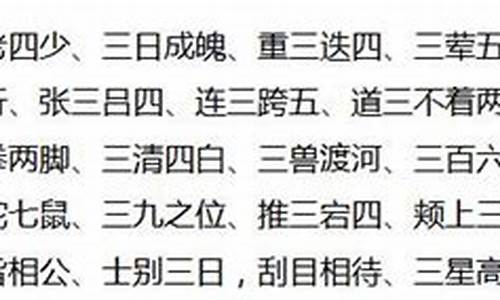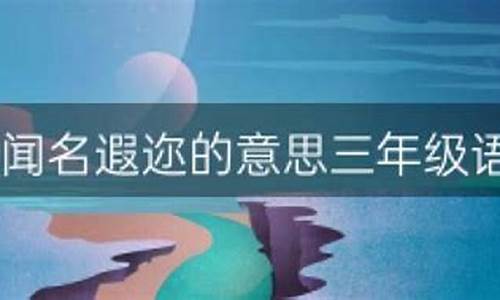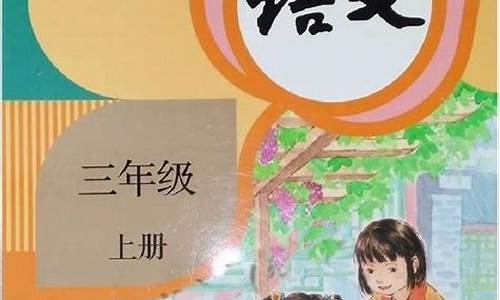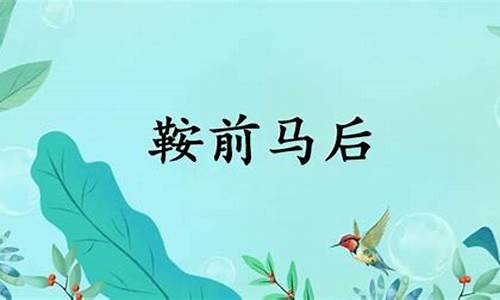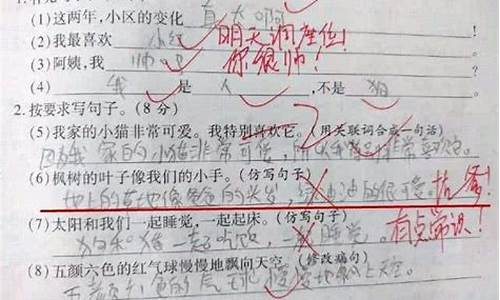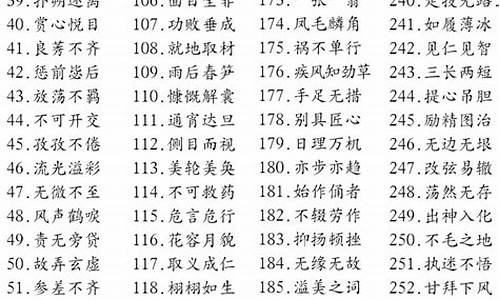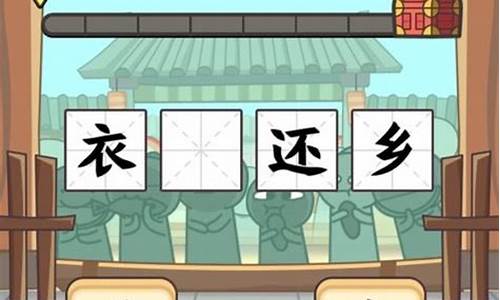成语故事英文版简短一分钟_成语故事英文版简短一分钟简单读
在当今这个日新月异的时代,成语故事英文版简短一分钟也在不断发展变化。今天,我将和大家探讨关于成语故事英文版简短一分钟的今日更新,以期为大家带来新的启示。
1.揠苗助长(英文版故事)
2.成语故事 英文版
3.谁有简单的英文成语故事
4.短一点的英语成语故事
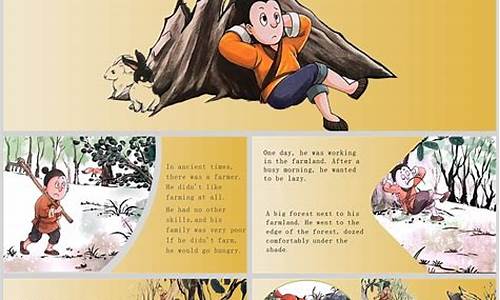
揠苗助长(英文版故事)
揠苗助长(英文版故事)
揠苗助长(To Pull up the Seedlings to Help Them Grow)
Once upon a time, an old farmer planted a plot of rice. Everyday he went to the field to watch the seedlings grow. He saw the young shoots break through the soil and grow taller each day. But still, he thought they were growing too slowly. He got impatient with the young plants. "How could the plants grow faster?" He tossed in bed during the night and could not sleep. Suddenly he hit upon an idea. He had an idea not wait for daybreak. He jumped out of the bed and dashed to the field. By the moonlight, he began working on the rice seedlings. One by one, he pulled up the young plants by half an inch. When he finished pulling, it was already morning. Straightening his back, he said to himself, "What a wonderful idea! Look, how much taller the plants have grown one night!" With great satisfaction, he went back home. He told his son what he had done in a triumphant tone. His son was shocked. Now the sun had risen. The young man was heart-broken to see all the pulled-up young plants dying.
People now use " Ba Miao Zhu Zhang" to describe the behavior of those who are too eager to get something done only to make it worse. The idiom is a bit like the English proverb "Haste makes waste" ------to spoil things by excessive enthusia *** .
异译
古时候宋国有个农夫,种了稻苗后,便希望能早早收成。
每天他到稻田时,发觉那些稻苗长得非常慢。他等得不耐烦,心想:"怎么样才能使稻苗长得高,长很快呢?想了又想,他终了想到一个"最佳方法",就是将稻苗拨高几分。
经过一番辛劳后,他满意地扛锄头回家休息。然后回去对家里的人表白:"今天可把我累坏了,我帮助庄稼苗长高一大截!"
他儿子赶快跑到地里去一看,禾苗全都枯死了。
人们现在用拔苗助长形容急于求成,违法客观规律,只会把事情办坏。成语有点像西方的谚语“欲速则不达”——过度的热情只会把事情办坏
“揠苗助长”的故事形成于A
成语故事·揠苗助长
[zww./CGZ]
来源:湖北少年儿童出版社 2004-12-7 10:15:45
--------------------------------------------------------------------------------
揠(yà)这个成语出自《孟子·公孙丑上》。
春秋时期,宋国有一个农夫,他总是嫌田里的庄稼长得太慢,今天去瞧瞧,明天去看看,觉得禾苗好像总没有长高。他心想:有什么办法能使它们长得高些快些呢?
有一天,他来到田里,把禾苗一棵一棵地往上拔。一大片禾苗,一棵一棵地拔真费了不少的力气,等他拔完了禾苗,已经累得筋疲力尽了,可是他心里却很高兴。回到家里还夸口说:“今天可把我累坏了,我帮助禾苗长高了好几寸!”他儿子听了,赶忙跑到田里去看,发现田里的禾苗全都已经枯死了。
“揠苗助长”用来比喻不管事物的发展规律,急于求成,反而把事情弄糟。“揠苗助长”也可写作“拔苗助长”。
《孟子·公孙丑上》:“宋人有闵其苗之不长而揠之者,茫茫然归,谓其人曰:‘今日病矣,予助苗长矣。’其子趋而往视之,苗则槁矣。”所以选a战国
揠苗助长
成语-揠苗助长
发 音yà miáo zhù zhǎng
释 义揠:拔起。把苗拔起,以助其生长。后用来比喻违反事物的发展规律,急于求成,反而坏事。
出 处先秦·孟轲《孟子·公孙丑上》:“宋人有闵其苗之不长而揠之者,芒芒然归,谓其人曰:'今日病矣,予助苗长矣。'其子趋而往视之,苗则槁矣。”
近义词 拔苗助长、欲速不达
用 法 连动式;作主语、宾语;含贬义
示 例 对学生的教育既不能~,也不能放任自流。
典 故
古时候宋国有个农夫,种了稻苗后,便希望能早早收成。
每天他到稻田时,发觉那些稻苗长得非常慢。他等得不耐烦,心想:"怎么样才能使稻苗长得高,长很快呢?想了又想,他终了想到一个"最佳方法",就是将稻苗拨高几分。
经过一番辛劳后,他满意地扛锄头回家休息。然后回去对家里的人表白:"今天可把我累坏了,我帮助庄稼苗长高一大截!
他儿子赶快跑到地里去一看,禾苗全都枯死了。
寓意客观事物的发展自有它的规律,纯靠良好的愿望和热情够的,很可能效果还会与主观愿望相反。这一寓言还告知一具体道理:"欲速则不达"。
原文:
宋人有闵其苗之不长而揠之者,芒芒然归,谓其人曰:“今日病矣!予助苗长矣!”其子趋而往视之,苗则槁矣。天下之不助苗长者寡矣。以为无益而舍之者,不耘苗者也;助之长者,揠苗者也,非徒无益,而又害之。(闵 通:悯)
B
任何事物都必须遵循客观规律,否则必将受到惩罚。
有些家长望子成龙,在周末送孩子上各种各样的补习班,使孩子疲惫不堪。
寓言故事:自相矛盾,滥竽充数,画龙点睛,守株待兔,买椟还珠,刻舟求剑,郑人买履,黔驴技穷,亡羊补牢
揠苗助长 作文揠苗助长
1. 成语-揠苗助长
发 音yà miáo zhù zhǎng
释 义揠:拔起。把苗拔起,以助其生长。
后用来比喻违反事物的发展规律,急于求成,反而坏事。
出 处先秦·孟轲《孟子·公孙丑上》
内容宋人有闵其苗之不长而揠之者,芒芒然归,谓其人曰:“今日病矣,予助苗长矣!”其子趋而往视之,苗则槁矣。
天下之不助苗长者寡矣!以为无益而舍之者,不耘苗者也;助之长者,揠苗者也;非徒无益,而又害之。
(译文)古时候宋国有个人,嫌禾苗长得太慢,就一棵棵的往上拔起一点,回家还夸口说:“今天我帮助苗长了!”他儿子听说后,到地里一看,苗都死了。天下不助苗生长的人实在很少啊。以为没有用处而放弃的人,就像是不给禾苗锄草的懒汉。妄自帮助它生长的,就像拔苗助长的人,非但没有好处,反而危害了它。
揠苗助长原文本文言文选自《孟子·公孙丑上》 发音yà miáo zhù zhǎng释义揠:拔起。把苗拔起,帮助其生长,后用来比喻违反事物的发展规律,急于求成,反而坏事。 寓意 1、客观事物的发展自有它的规律,纯靠良好的愿望和热情是不够的,很可能效果还会与主观愿望相反。这一寓言还告知一具体道理:"欲速则不达"。 2、人们对于一切事物都必须按照客观规律去发挥自己的主观能动性,才能把事情做好。反之,单凭自己的主观愿望去做,即使有善良的愿望,美好的动机,结果也只能是适得其反。 出处先秦·孟轲《孟子·公孙丑上》 宋人有闵①其苗之不长②而揠③之者,芒芒然归④,谓其人⑤曰:“今日病⑥矣,予⑦助苗长矣!”其子趋⑧而⑨往视之,苗则槁⑩矣。 天下之不助苗长者寡矣!以为无益而舍之者,不耘苗⑾者也;助之长者,揠苗者也;非徒⑿无(13)益,而又害之。(选自《孟子·公孙丑上》) [注释] ⑴闵(mǐn)——同“悯”,担心,忧虑。 ⑵长(zhǎng)——生长,成长。 ⑶揠(yà)——拔。 ⑷芒芒然——疲倦的样子。 ⑸其人——他家里的人。 ⑹病——精疲力尽,是引申义 ⑺予——我,第一人称代词. ⑻趋——快走。 ⑼往——去,到..去。 ⑽槁(gǎo)——草木干枯。 ⑾耘苗:给苗锄草 ⑿非徒——非但。徒,只是。 ⒀益:好处。 ⒁子:儿子 译文古宋国有个人担忧他的禾苗不长就一棵一棵的拔禾苗一天下来十分疲劳,回到家对他的家人说:“今天可把我累坏了,我总算让禾苗一下子就长高了!”他儿子听说后急忙到地里去看苗,然而苗都枯萎了。 天下不犯这种拔苗助长错误的人实在很少啊!以为没有用处而放弃的人,就像是不给禾苗锄草的懒汉。妄自帮助它生长的,就像拔苗助长的人,非但没有好处,反而害了它。先秦·孟轲《孟子·公孙丑上》
宋人有闵①其苗之不长②而揠③之者,芒芒然归④,谓其人⑤曰:“今日病⑥矣,予⑦助苗长矣!”其子趋⑧而⑨往视之,苗则槁⑩矣。
天下之不助苗长者寡矣!以为无益而舍之者,不耘苗⑾者也;助之长者,揠苗者也;非徒⑿无(13)益,而又害之。(选自《孟子·公孙丑上》)
[注释] ⑴闵(mǐn)——同“悯”,担心,忧虑。
⑵长(zhǎng)——生长,成长。
⑶揠(yà)——拔。
⑷芒芒然——疲倦的样子。
⑸其人——他家里的人。
⑹病——精疲力尽,是引申义
⑺予——我,第一人称代词.
⑻趋——快走。
⑼往——去,到..去。
⑽槁(gǎo)——草木干枯。
⑾耘苗:给苗锄草
⑿非徒——非但。徒,只是。
⒀益:好处。 ⒁子:儿子
译文
古宋国有个人担忧他的禾苗不长就一棵一棵的拔禾苗一天下来十分疲劳,回到家对他的家人说:“今天可把我累坏了,我总算让禾苗一下子就长高了!”他儿子听说后急忙到地里去看苗,然而苗都枯萎了。 天下不犯这种拔苗助长错误的人实在很少啊!以为没有用处而放弃的人,就像是不给禾苗锄草的懒汉。妄自帮助它生长的,就像拔苗助长的人,非但没有好处,反而害了它。
成语故事 英文版
叶公好龙,汉语成语,比喻口头上说爱好某事物,实际上并不真爱好。以下是我精心整理的《叶公好龙》的成语故事中英文版,欢迎大家借鉴与参考,希望对大家有所帮助。
There is a young man, Lord Ye. He likes dragons vey much. He draws many dragons in his house. The house becomes a world of dragon.
A red dragon hears of Lord Ye, and is deeply moved. He wants to visit Lord Ye and makes a friend with him.
“Hi, Mr. Ye! Nice to meet you,” the real dragon comes to visit Mr. Ye runs away as fast he can. “Oh, my God! Help! Help!” he runs and shouts.”
有个年轻人,姓叶,非常喜欢龙.他在屋里里面了许多许多龙。
这屋子都快成了龙的世界。一龙真龙听说了叶公的.事,很受感动,就想去拜访叶公,和他交个朋友。
“嘿。叶先生!很高兴见到你。”这条真龙拜访叶先生了。可是叶先生飞快地逃了。忒边跑边喊:“啊,我的天啊!救命!救命!”
谁有简单的英文成语故事
掩耳盗铃Plugging One's Ears While Stealing a Bell
春秋时侯,晋国贵族智伯灭掉了范氏。有人趁机跑到范氏家里想偷点东西,看见院子里吊着一口大钟。钟是用上等青铜铸成的,造型和图案都很精美。小偷心里高兴极了,想把这口精美的大钟背回自已家去。可是钟又大又重,怎么也挪不动。他想来想去,只有一个办法,那就是把钟敲碎,然后再分别搬回家。
小偷找来一把大大锤,拼命朝钟砸去,咣的一声巨响,把他吓了一大跳。小偷着慌,心想这下糟了,这种声不就等于是告诉人们我正在这里偷钟吗?他心里一急,身子一下子扑到了钟上,张开双臂想捂住钟声,可钟声又怎么捂得住呢!钟声依然悠悠地传向远方。
他越听越害怕,不同自由地抽回双手,使劲捂住自已的耳朵。“咦,钟声变小了,听不见了!”小偷高兴起来,“妙极了!把耳朵捂住不住就听不进钟声了吗!”他立刻找来两个布团,把耳朵塞住,心想,这下谁也听不见钟声了。于是就放手砸起钟来,一下一下,钟声响亮地传到很远的地方。人们听到钟声蜂拥而至把小偷捉住了。
故事出自《吕氏春秋?6?1自知》“掩耳盗钟”被说成“掩耳盗铃”,比喻愚蠢自欺的掩饰行为。
Plugging One's Ears While Stealing a Bell
During the Spring and Autumn period,Zhi Bo of the State of Jin destroyed Fan's family.Taking advantage of this occasion,a man went to Fan's house and tried to steal something.As soon as the man entered the gate,he saw that there hung a big bell in the courtyard.The bell was cast in high-quality bronza,and was beautiful in design and shape.The theif was very glad,and decided to carry this beautiful bell back home.But no matter how hard he tried,he could not move the bell,because the bell was both big and heavy.He thought and thought again,and believed there was only one way to solve the problem.He had to break the bell to pieces before he was able to carry them back to his home separately.
The thief found a big iron hammer,with which he struck the bell with all his might.The striking produced an enormous crashing sound,which might.The striking produced an enormous crashing sound,which made the thief terribly frightened.The thief got flurried,thinking that it was too bad to have produced the crashiing sound which would himself on the bell,trying to muffle the crashing sound with his arms.But how could the crashing sound of the bell be muffled?The crashing sound still kept drifting melodiously to distant places.The more he listened to the sound,the more frightened hw became.He xubconsciously shrank back,and covered his ears hard with his hands."Hey,the sound becomes fainter,inaudible,"the thief became cheerful at once," wonderful!The sound of the bell can not be heard when the ears are covered."He immediately got some odd bits of cloth,made two rolls with them,and had his ears plugged with the two cloth rolls.He thought that in this way nobody could hear the sound of the bell.Feeling relieved,he began striking the bell,one blow after another.The resounding sound of the bell was heard at distant places,and finally people caught the thief by gracing the sound.
This story comes from"Knowing Yourself" in The Annals by Buwei,written just before the Qin Dynasty(221-207 B.C.)was founded.Allegedly,when Li Yuan,Emperor Gao Zu of the Tang Dynasty(618-907),read this story,he felt it simply ridiculous and said,"This is what is called plugging one's ears while stealing a bell."
Later,people have used the set phrase "plugging one's ears while stealing a bell" to refer to the ignorance and foolishness of the person who deceives himself as well as others.
短一点的英语成语故事
成语故事,中英文对照
惊弓之鸟
Birds Startled by the Mere Twang of a Bowstring
战国时期(公元前403―221年中国中原地区各诸侯国连年争战的时代)魏国有个名叫更羸的人。一天,他对国王说:“我只要拉开弓,空射一下,就能把天上的鸟射下来。”国王不相信。更羸便对准天上飞来的一只雁射去,果真那只雁听到拉弦的声音就掉了下来。国王感到很奇怪。更羸说,“那是一只受过伤的雁。它一听到我拉开弓弦的声响,就惊慌得支持不住,自然要掉下来了。”
In the Warring States Period, there was a man in the State of Wei called Geng Lei. One day he said to the king: 'I can shoot down birds by simply plucking my bowstring.' When the king expressed doubt, Geng Lei pointed his bow at a wild goose flying in the sky, twanged the bowstring, and the goose fell to the ground. Geng Lei said, 'This goose has been hurt in the past. Hearing the twang of the bowstring, it assumed that it was doomed. So it simply gave up trying to live.'
“惊弓之鸟”这个成语比喻受过惊恐之后,有一点动静就特别害怕。
This idiom means that if one has been frightened in the past one's will may become paralysed in a similar situation.
英语成语故事-井底之蛙
The Frog in the Shallow Well (Jing Di Zhi Wa)
Have you not heard of the frog that lived in a shallow well? It said to a turtle that lived in the East Sea, "I am so happy! When I go out, I jump about on the railing beside the mouth of the well. When I come home, I rest in the holes on the broken wall of the well. If I jump into the water, it comes up to my armpits and holds up my cheeks. If I walk in the mud, it covers up my feet. I look around at the wriggly worms, crabs and tadpoles, and none of them can compare with me. Moreover, I am lord of this trough of water and I stand up tall in this shallow well. My happiness is full. My dear sir, why don't you come often and look around my place?"
Before the turtle from the East Sea could get its left foot in the well, its right knee got stuck. It hesitated and retreated. The turtle told the frog about the East Sea.
"Even a distance of a thousand li cannot give you an idea of the sea's width; even a height of a thousand ren cannot give you an idea of its depth. In the time of King Yu of the Xia dynasty, there were floods nine years out of ten, but the waters in the sea did not increase. ln the time of King Tang of the Shang dynasty there were droughts seven years out of eight, but the waters in the sea did not decrease. The sea does not change along with the passage of time and its level does not rise or fall according to the amount of rain that falls. The greatest happiness is to live in the East Sea."
After listening to these words, the frog of the shallow well was shocked into realization of his own insignificance and became very ill at ease.
=============================
英语故事:惊弓之鸟
A Bird Startled by the Mere Twang of a Bow-String
This set phrase figuratively denotes those who have suffered disasters and so have a lingering fear when anything happen.
During the War Period ,in the Wèi State there lived a famous archer named Gēng léi.
One day,Gēng léi and the King of Wei standing on a high terrace saw some birds flying past.
At this Gēng léi said to the King:"I'll shoot a flying bird down for YourMajesty by drawing a bow with no arrow."
The King asked,"Is it possible that one's archery can attain such a level?"
A little later,a wild goose was flying from the east.
Gēng léi just drew his bow but didn't shoot an arrow.
As expected,the wild goose fell to the ground with the twang.
The King asked in surprise,"How can your archery reach such a high level?"
Gēng léi replied ,"This wild goose has been wounded."
The King got more surprised,asking,"How do you know it,sir?"
Gēng léi esplained,"This wild goose flew slowly and cried sadly.Its flying slowly suggested that it was still aching with the old wound; its crying sadly suggested that it had strayed long from its flock.When it heard the twang the wild goose had to flutter hard to fly high for its life.So it is evitably fell down with its old wound burst."
=============================
刻舟求剑
Making His Mark (Ke Zhou Qiu Jian)
A man from the state of Chu was crossing a river. In the boat, his sword fell into the water. Immediately he made a mark on the boat.
"This is where my sword fell off," he said.
When the boat stopped moving, he went into the water to look for his sword at the place where he had marked the boat.
The boat had moved but the sword had not. Is this not a very foolish way to look for a sword
好了,今天关于“成语故事英文版简短一分钟”的探讨就到这里了。希望大家能够对“成语故事英文版简短一分钟”有更深入的认识,并且从我的回答中得到一些帮助。
声明:本站所有文章资源内容,如无特殊说明或标注,均为采集网络资源。如若本站内容侵犯了原著者的合法权益,可联系本站删除。

